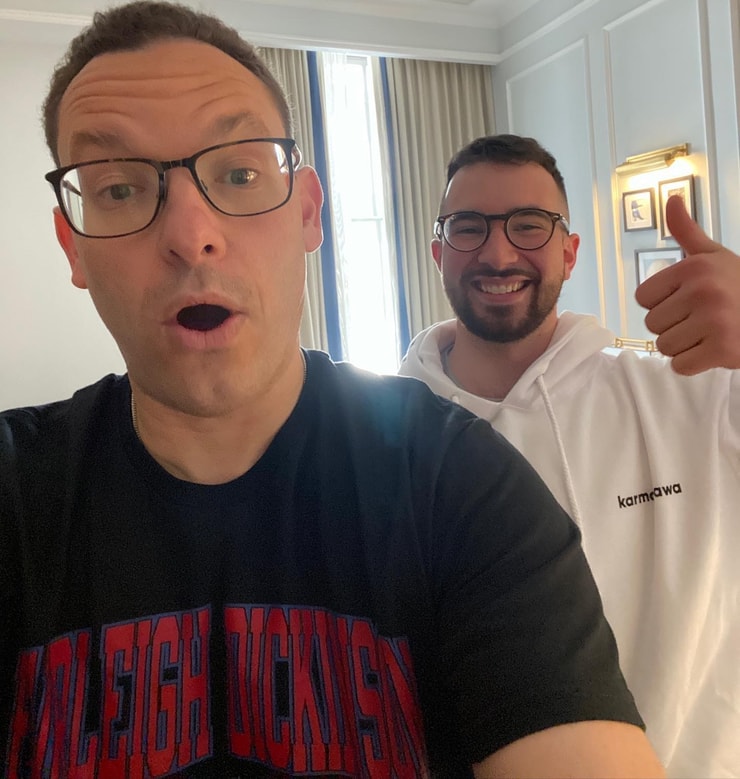Many folks are their own worst enemy when it comes to achieving success.
It’s a shame seeing traders sabotage themselves by making mistakes that are easily avoidable.
All of my millionaire students know it takes discipline, patience, and a willingness to want to improve daily.
But before any of them could think about making money, they had to eliminate the waste.
Here are seven crucial trading mistakes you must avoid…
Table of Contents
Mistake #1: No Risk Management Plan
The only reason why I’m still around after +20 years as a trader is because of my ability to cut losses quickly.
I’m not the world’s best stock picker…I’m not a great market timer…and I certainly don’t pick tops or bottoms that well.
However, you don’t have to be the best if you are disciplined about cutting losses quickly.
If you’re a newbie trader or someone who isn’t profitable yet…
- You want to know in advance what your targets are: One for profits and the other for cutting losses.
- How much you want to make and what you’re willing to lose: Risk vs. reward.
- Have a max loss number in place. Set limits on how much you’re willing to lose on one trade. If you reach your limit, close out the position. You can also set a limit for the entire day. If you exceed it, you stop yourself from trading the rest of the day.
You’ll have greater flexibility to bend the rules once you’re consistently profitable. However, in the early stages it’s important to stay disciplined and respect your risk rules.
Mistake #2: Bouncing Around

Options, swing-trading, scalping, momentum, short-selling…
The list of strategies goes on and on.
Which one is the best?
The one that works for you.
However, discovering what it is takes time. One huge mistake I see from newbie traders is bouncing around from strategy to the next. It’s hard to improve and get better if you’re constantly changing your approach every time you have a losing trade.
Mistake #3: Trading Without A Plan
Most good traders have setups, catalysts, and patterns that they like to trade.
By defining what they are, and tracking the results, they are confident at knowing what their strengths and weaknesses are.
Which allows them to trade with a plan.
You know how losing traders do it?
The jump into trades without targets, without a thesis, or a plan on how to trade it. Everything is random for them. And their results suffer.
A plan should consist of the catalyst driving you to make a long or short entry, as well as, written out price levels where you plan to take profits or cut losses.
Of course, a trading plan can be more elaborate, but it’s always better to keep things simple in the beginning.
Mistake #4: Relying On Memory

I tell my students to study.
Study their trades, study the trades they missed, study the patterns and catalysts working in the market right now.
The easiest way to do that is to keep a journal.
Let’s say you place two trades per year. There are 252 trading days in a year. That means you would have placed 504 trades.
How could you possibly remember those trades using memory?
You’re doing yourself a disservice by not recording your trade history and keeping a journal.
Not only will it help you discover your strengths and weaknesses faster. It will also help you work on the mental and emotional side of trading.
Mistake #6: Trading For Thrills
Good trading requires patience and discipline. However, most traders are adrenaline junkies…they thrive off action.
The only problem is that there isn’t much action in the market right now.
That means traders are settling for subpar setups and letting FOMO get the best of them.
I know it is for me this month. I’ve been trying to make money, forcing the action, and have gotten stung.
Trading is not F1 racing.
Sure, it can be exciting to make a lot of money in a single day.
However, you want to do that by following your rules and being disciplined.
The more you focus on the process and execution the better you’ll do.
The more you focus on trying to make money the less likely you are to make money.
I know, it’s twisted, but I don’t make the rules.
Mistake #7: In A Hurry To Get Rich

Many people hear about the success stories and are inspired to join my program.
The ones who do the best, are the ones with the right expectations.
For example, Jack Kelloggg, has made over $10.5 million in trading profits in less than 3 years…
But he didn’t make a single penny in profits his first year. In fact, he lost $2,600.
Most people would have given up after those results in year one. However, Jack knew that it would take time for things to click.
He was encouraged to see the plays working and others make money. He just had to make a few adjustments, continue to study hard, and learn from his wins and losses.
The bottom line is you have to be process driven and not money driven. Focus on developing and learning the skills needed to be a successful trader.
If you’re looking at get rich quick gimmicks… then my program isn’t the right one for you.
But if you believe that if you work hard and follow the process that you deserve great things to happen to you…then click here for more information.


Leave a reply